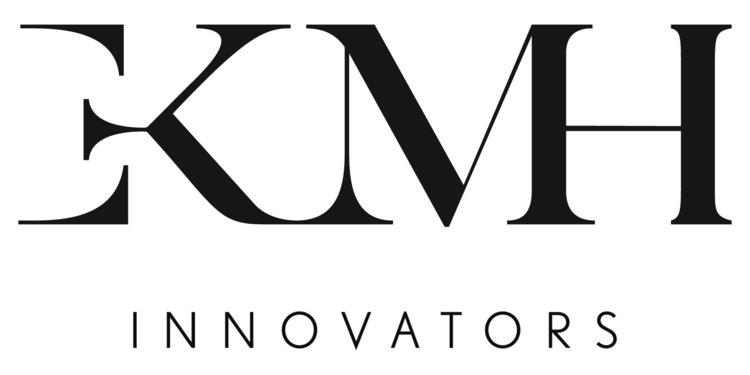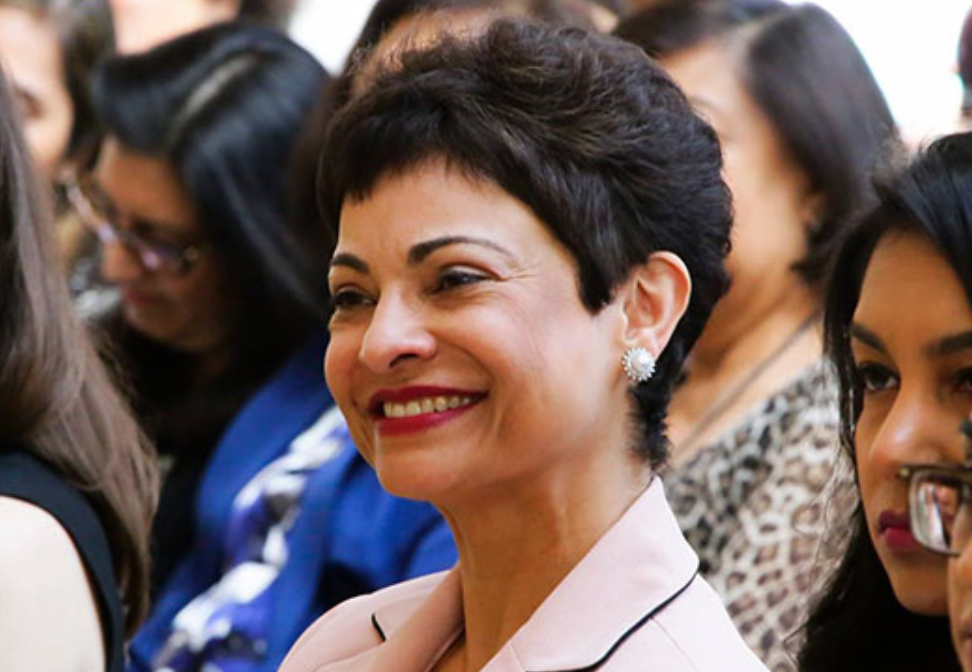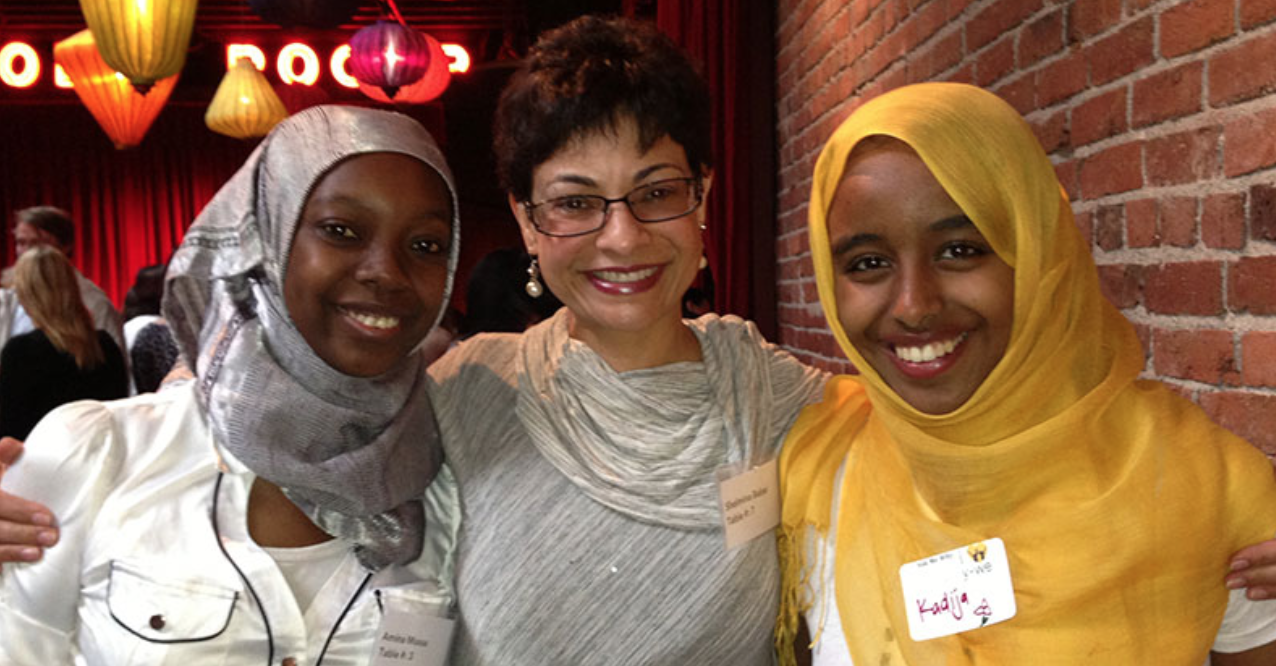EKMH Innovators Interview Series
An interview series spotlighting global tech influencers, disruptors, visionaries, and of course, innovators.
Welcome back, Innovators! What a month it’s been. I hope this latest installment finds you and your loved ones healthy and/or healing. Endless gratitude to all health responders, from the first to the final and all those in between.
The Innovators series will continue to spotlight global cerebral trailblazers who are fomenting much-needed change. As expected, some of these changes can be perceived rapidly, while other changes will lead to lasting, systemic improvement over months, years and decades.
Meet Global Empowerment Leader / Entrepreneur/ UN Girl Up Advisor / Board Member / Angel Investor Shelmina Babai Abji. In 2014, Babai Abji, diversity champion and a C-Suite advisor, left her career as one of IBM’s highest ranking woman of color to share her riveting insight and journey with other women to accelerate their career success. Her guidance has enabled and energized thousands of women globally to overcome multiple internal and external barriers to fast track their own career success.
Born in Tanzania, at 15 Babai Abji left home to pursue higher education in India and the US, eventually becoming the first person in her family to obtain a university degree. According to Babai Abji, her education was her passport out of poverty. Balancing her career as a single mother, Babai Abji successfully built and led global teams, businesses which delivered over $1B annually. She has spoken at many corporations, conferences and universities including Google, IBM, Microsoft, Edward Jones, WITHOrg, AAHOA, National Center for Women in Technology, Kenya Economic forum, Uganda Industrial Research Institute, Universities of Wisconsin, Washington, Oregon and Harvard University.
In addition to her workshops and speaking engagements, Babai Abji also serves on the advisory board of Girl Up, a United Nations Foundation initiative focused on positioning girls to be leaders in the movement for gender equality. She previously served on the boards of Bellevue College, TiE-Seattle and Young Women Empowered, an organization focused on cultivating the power of diverse young women to be creative leaders and courageous change-makers.
I caught up with Shelmina Babai Abji via phone and email and, candidly, cannot wait to share her vision and advice on gender equity, personal branding, personal evolution, work/life balance, diversity, individual power and potential, choices leading to a better articulated life, the importance of mentoring and more. Don’t miss the video clip of her workshop which closes the interview. Our interview follows.
EKMH: When watching and reading your work, one cannot fail to be energized by your powerful word choice, message and mission. Could you please discuss and share advice how to stimulate an evolution of strength, courage and confidence with regard to fear and gratitude?
Shelmina Babai Abji: Great question. In order for you to stimulate an evolution of strength, courage and confidence, first and foremost you must define your personal success which is aligned with your strengths and requires you to build courage and confidence to achieve your success. We are all evolving, either consciously or unconsciously. When you define and work toward achieving your personal success, it becomes your compass for every choice, so you evolve consciously. Know your strengths; know them deeply and own them. Pursue experiences where you can contribute value with your strengths.
Recognizing that I could create value for my team and my organization using my strengths, I found the courage to dismantle my internal and external barriers that were getting in the way of my ability to contribute value. Reflecting upon my growth as a result of dismantling these internal and external barriers also gave me the courage to seek more challenging experiences. The steeper the challenge, the more I learned and grew, which in turn fueled my courage to take on even bigger challenges. Learning and growing from these challenges increased my courage and confidence, becoming an upward spiral for achieving my personal definition of success.
I love the quote by Albert Einstein that states: “ Everyone is a genius. But if you judge a fish by its ability to climb a tree, it will live its whole life believing that it is stupid.” Many of us - especially women - downplay our strengths and amplify our weaknesses: we must turn that around. Everyone has weaknesses. Know them so you don’t allow them to derail your success. Knowing your strengths also gives you the confidence to state your weaknesses without having to apologize for it.
Fear creates an internal barrier which prevents us from having the courage to take on challenges. Fear prevents us from getting outside our comfort zone; courage and comfort cannot coexist. We must dismantle this barrier- it is internal work- only we can get rid of our fears. A simple way of doing this is: whenever you are fearful that something will not work out, ask yourself, “What if it does?”
When I started my career, I was fearful of speaking up in a group setting because of my own self-limiting thoughts. Today I am an empowerment speaker- this is only possible because I faced my fears multiple times. People take us at our own estimate, when we lack confidence in ourselves, we cannot expect anyone else to have confidence in us.
Oftentimes, we don’t take on challenges because we are fearful of the outcome: what if something does not work out according to some arbitrary expectation we have set? The fact is that individual outcomes becomes less relevant over time- the growth you experience is what matters and stays with you. Do not let fear hold you back from growth. It truly is a personal choice: Face Everything And Rise or Forget Everything And Run: always choose to rise. The more you do this, the easier it becomes.
Gratitude keeps us grounded and humble. It is our fuel for not letting our success get to our heads. Intellectual humility is key to growth. Gratitude also gives us joy and contentment while we are in the pursuit of more growth and more success.
EKMH: Why is unlocking one’s individual power and potential essential in the journey of self-discovery? Why not “just sit there”?!?
Shelmina Babai Abji: Another great question. Let me first define the words “individual power”; I find that there is too much confusion about what this means. I speak about power in the context of its definition in the business dictionary: “influence over others; the source of which resides in the person instead of being vested by the position he or she holds.”
So, first and foremost, we must recognize that the source of our individual power resides in us: no one can gift it to us, nor can anyone ever take it away from us, unless of course we give it away. The reason unlocking our power and potential is essential to our self discovery is because we don’t know what we are capable of until we discover it. If we get on a journey to unlock our power and potential, we not only discover our current capabilities, but we can also consciously grow into our future best self.
The journey starts with self knowledge and self acceptance at this present moment- your current level of power and then expanding your power to increase your influence and unlock your potential – to become more, to contribute more, to influence more. In this process we learn who we are and we also grow to become who we aspire to be. This is an ongoing process…the more we unlock our power and potential, the more possibilities we see to increase our impact and influence. If we “just sit there” and not use our power to create influence, we miss the opportunity to contribute and grow; we leave our unique talents and gift unused.
EKMH: How does work/life balance differ from work/life integration? What advice do you have for consciously allocating your “most valuable” resource, your time?
Shelmina Babai Abji: Recently, there have been a lot of conversations around work/life balance and work/life integration. Pervasive technology and our ability to work from wherever we are shines a brighter light on this. We are all different with different circumstances; the key is to pick whatever gives you a sense of success and fulfillment in both areas. Pick whatever works for you: you know yourself better than anyone else.
Consider the following definitions:
balance: an even distribution of weight enabling someone or something to remain upright and steady
and
integration: when separate things are brought together.
I personally struggled to find balance when I unexpectedly became a single mother of my two children when they were 2 and 4 years old. At the time I was first line sales manager at IBM with 10 people reporting to me and a target of $120M annually. I was overwhelmed to say the least. I would show up to work preoccupied and tired. I would be thinking about all the tasks I had to perform when I got home and sub-optimized my productivity. When I got home, I would be thinking about work and shortchanged my quality time with my children. I had to learn to compartmentalize my work and my life. I had to find a balance. I had to learn to be completely present with the task at hand. Doing this increased my productivity at work and my joy at home.
We all get 24 hours in a day. How you allocate those 24 hours is the most important choice you make. My advice is to be proactive and intentionally allocate your attention. I use the word “attention” because I find people spending time on a task but their attention is somewhere else. Figure out what is most important to you and prioritize it. This way nothing important will ever fall through the cracks and your attention will not get consumed by what does not matter.
EKMH: How can such decisions lead to a better articulated life, especially given dynamic priorities and incremental changes? In your life, which significant changes helped engender transformation and shaped your own life’s story?
Shelmina Babai Abji: When you consciously define what success means to you, you decide what matters to you. This enables you to intentionally focus your attention and energy moving towards that definition. You are choosing to live a life that matters...to you! It is like the destination on your GPS: regardless of the detours, you will get back on track to your destination.
You cannot be driven by external circumstances which are constantly changing. If you do, you run the risk of bouncing around like an accidental object and not live your life on your own terms; you leave your talents and gifts to chance. When you know what success means to you, you can make the best possible choices- both long term and in the moment- you can evaluate the ever-changing landscape and determine your best response using your own internal compass.
My life has given me many experiences that engendered transformation and shaped my story. Starting with humble beginnings, having to leave home at the age of 15 because there was no education past tenth grade in the town, I was born to become the first person in my family to obtain a college degree. Dismantling many internal and external barriers as I rose up to become one of the highest-ranking women at IBM while raising my children as a single mother since they were 2 and 4 years old.
The realization that just because no one who looked like me was in roles I wanted to have did not mean I could not do it, engendered the greatest transformation. I started pursuing accelerated success and was not going to allow anything to stop me. I cannot always choose what happens but I can always choose my response. I trust myself to respond appropriately regardless of what came my way to keep pursuing my definition of success.
EKMH: How can smart personal branding lead to success? What steps can girls and women initiate to “shine their brightest” and begin to solidify their sense of self-belief?
Shelmina Babai Abji: Your personal brand is what people say about you when you are not in the room. It is who you are and what you stand for, it is your reputation. Some of the most important decisions about your career will be made in a room where you will not be present – but your personal brand will be.
Every interaction leaves behind an impression which forms your personal brand. So be mindful about how you show up and engage. Reflect upon your behavior and ask yourself, is this how I want to be known? Am I projecting the best version of myself? Learn from these questions and course correct as necessary. Smart personal branding is determining how you want to be known and behaving in accordance with it. It must be authentic: grow into the person for which you want to be known.
EKMH: In your writing, you note “modeling possibility” as a topic for empowerment. How can other women leaders, particularly those in STEM, better share their energy, success and tools now to help empower female peers, rising female team members, young women graduates and adolescent girls interested in the sector?
Shelmina Babai Abji: This is such an important question. Our current statistics of women leaders in STEM are dire. Only when we all support each other and create a rising tide that lifts all of us, will we be able to change those statistics. There are multiple ways to do this.
First and foremost involves your own behavior. When you trust yourself to figure things out, when you shine your brightest, when you take on challenging assignments, when you are learning and growing, when you proactively seek challenges, when you make the right decisions even though they are tough, when you succeed against all odds, you model possibility. Your mere presence will inspire others to succeed.
Lift others as you rise. It is never too late to start lifting others- become a mentor, advocate for others, share your insights, provide constructive criticism in a way that builds them, encourage them, notice potential and ignite it, provide support when needed- do whatever is needed to lift others.
EKMH: How have mentors and mentees played an invaluable role in your own career? Why does sharing stories and learned lessons help empower and solidify potential opportunities for women around the world?
Shelmina Babai Abji: All kinds of relationships have played an invaluable role in my career including mentors and sponsors. One of my mentors and a woman leader I deeply admired saw potential in me early in my career at IBM. She asked me where I wanted to be in 5 years. Frankly, I was so fixated on excelling every year in my current job that I had never thought about what I wanted to do next and next. This question changed my approach and I started investing in my growth and my career instead of thinking about it as a job in which I excelled every year. Other mentors have guided my decision making and provided feedback for growth. My sponsors have advocated for me, especially as I became an executive. Sharing stories and lessons learned are extremely critical. Other women can learn from you, take what resonates with them and create their own epic stories.
EKMH: And last but not least, which books, podcasts and/or films are among your favorites?
Shelmina Babai Abji: As A Man Thinketh by James B. Allen
The Seat of the Soul by Gary Zukav
7 Habits of Highly Effective People by Stephen Covey
The 4 Agreements by Don Miguel Ruiz
The Prophet by Khalil Gibran
*Disclaimer: The views and opinions expressed in this series are those of the interviewees and do not necessarily reflect the views or positions of any entities they represent.
Search below and read more interviews in the EKMH Innovators Interview Archive or via MuckRack… Don’t miss an interview or prediction! Be a part of the conversation.



